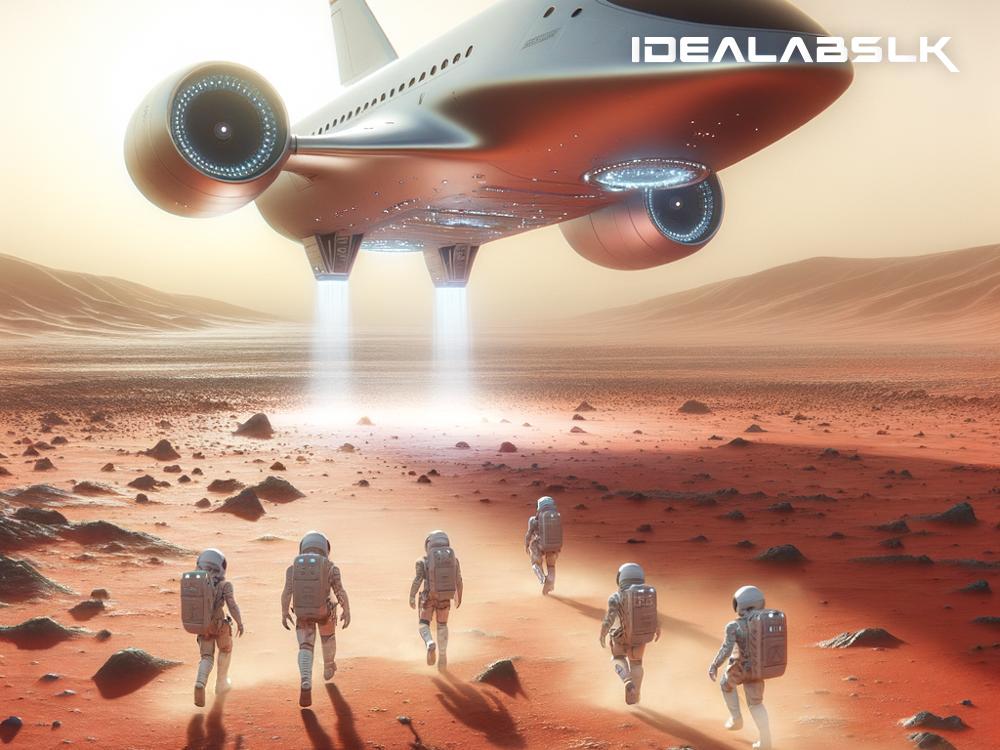SpaceX and Mars: Building a New World Amid Challenges and Opportunities
Elon Musk, the visionary behind Tesla and SpaceX, dreams of transforming humanity into a multi-planet species. His eyes are set on Mars, a distant, barren world that he hopes to transform into a new home for humanity. This grand plan is ambitious and fraught with challenges, yet it also offers unparalleled opportunities. Here, we explore the rocky path towards Mars colonization laid out by SpaceX and what it means for the future of mankind.
Mars Colonization: The Dream of SpaceX
Mars has captivated humanity's imagination for centuries, but it took the bold vision of Elon Musk and the innovative prowess of SpaceX to transform science fiction into potential reality. SpaceX has been at the forefront of developing cost-effective space travel technologies, with the ultimate goal of landing humans on Mars. The plan is not just to visit but to establish a self-sustaining colony on the Red Planet. This vision, however, is easier said than done.
Navigating the Challenges
Mars colonization presents a plethora of challenges, starting with the journey itself. The trip to Mars could take anywhere from six to nine months, during which astronauts will face cosmic radiation, microgravity, and the psychological toll of being confined in a small space. Once on Mars, the challenges multiply. Here’s a look at some of these obstacles:
- Harsh Environment: Mars is a frigid wasteland, with temperatures dropping as low as -125 degrees Celsius at the poles. Its thin atmosphere, composed mainly of carbon dioxide, offers no breath of relief for Earth-born life.
- Radiation Exposure: Without a magnetic field and a thick atmosphere, Mars offers no protection against the sun's harmful radiation and cosmic rays, posing a significant risk to human health.
- Resource Scarcity: Water, oxygen, and food – essentials for human survival – are scarce on Mars. Although there is water ice on Mars, extracting it and transforming it into usable resources will require significant technological innovation.
Despite these formidable challenges, the mission to Mars is also laden with opportunities that could redefine humanity's future.
Unearthing Opportunities
- Advancements in Technology: The sheer scale of the Mars colonization effort forces innovation. From developing new propulsion systems to creating sustainable life support systems, each hurdle overcome is a technological leap forward.
- Understanding Mars’ Mysteries: Mars holds the key to numerous scientific enigmas, including the history of water on the planet and the potential for past life. A human presence on Mars would significantly amplify our ability to unlock these mysteries.
- Inspiring Humanity: The quest to colonize Mars has the power to unite humanity in a common purpose, inspiring new generations of scientists, engineers, and dreamers.
- Economic Growth: Space exploration has historically driven economic growth through new technologies and industries. Mars colonization would likely spark an unprecedented wave of innovation and economic expansion.
Building a New World
SpaceX’s plan for building on Mars revolves around the development of the Starship spacecraft – a fully reusable transport system designed to carry humans and cargo to Mars and beyond. The initial missions will focus on delivering cargo and setting up the infrastructure necessary for life support, including habitats, power systems, and resource extraction facilities. Only after establishing a sustainable support system will humans land on Mars to begin the long, arduous process of building a new civilization.
This endeavor will require international cooperation, significant investment, and an unwavering commitment to overcoming the unknown. Yet, Elon Musk's timeline for reaching Mars remains aggressively optimistic, with hopes of landing humans on the Red Planet within this decade.
Final Thoughts
The journey to Mars represents one of the most ambitious endeavors ever undertaken by humanity. The challenges of Mars colonization are vast and complex, but the opportunities it offers – for scientific discovery, technological advancement, and the unification of humanity with a common goal – hold the promise of a brighter future, not just for those who will live on Mars, but for all of humanity.
In embarking on this journey, SpaceX, under Elon Musk's daring leadership, is not just aiming to build a colony on Mars; it is seeking to catalyze a new era of human civilization. The road is long and uncertain, but the dream of a human footprint on Martian soil grows ever more tangible with each passing day. As we stand on the cusp of this new frontier, we are reminded of the boundless nature of human ambition and the unquenchable thirst for exploration that has always driven us to reach for the stars.

